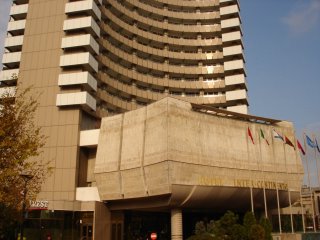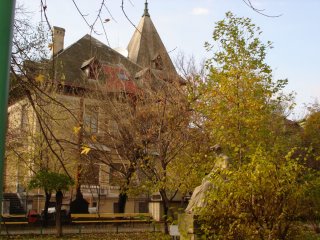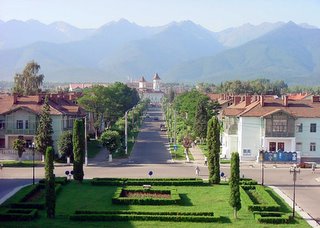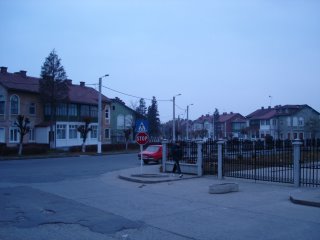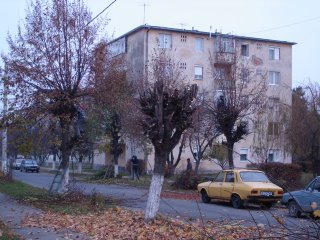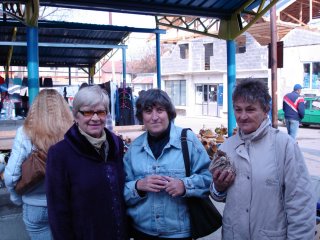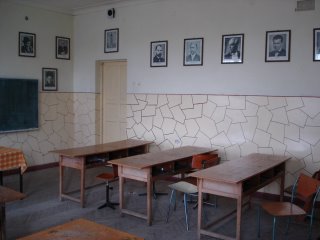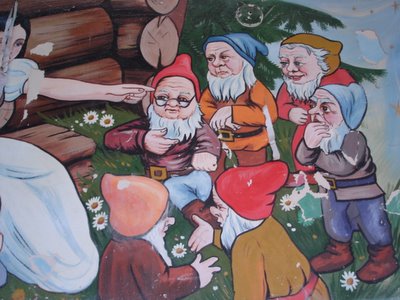Coffeemania
If you're a visitor in Bucharest it can be a wonderful city, but as a resident I find it difficult to live here. I grew up in a small, quiet town at the base of the mountains. Bucharest is the opposite: crowded, noisy, polluted and spread out like a pancake on Romania's map. If it wasn't for my cousin Titi and his wife Florina, I don't know how I could've stayed here for so long. Their helpful survival tips have meant so much to us.

Bucharest is certainly an insider's city. You can't just get roll into town and step into a good cafe or a good restaurant (like we did in Cluj or Sibiu). Without a guide, it takes a while to find a good place, but when you do, you'll be pleasantly surprised. We've been searching for a good cafe ever since we got to Bucharest. By that I mean a cafe that serves a good cup of espresso, at a reasonable price, a relaxing place with nice, friendly service (to be sure, there are plenty of cafes in Bucharest, but I find most of them to be stuffy and pretentious). After a long search and at the suggestion of one of our friends (Thanks, Dan!) we discovered Cafe Grand Galleron in the shadow of Athenee Palace. Its century-old premises are divided into small private rooms with one of them being reserved for non-smokers (aahhhh, deep breath!). The atmosphere is artsy, but in a non-pretentious way and the coffee is excellent. They even have laptop computers available in case you decide to check your e-mail while sipping that cup of latte. The picture below doesn't do any justice, but you can check out their web site for better photos.
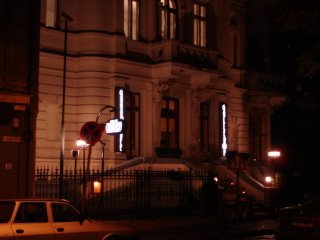 Wait, even more, the Galleron is right accross from our favorite restaurant, La Mama. If you're craving some traditional Romanian food like "mamaliguta cu brinza si smintina" (polenta with cheese) or sarmale (cabbage rolls) or a hot cup of "coirba cu fasole si ciolan afumat" (bean soup), this is the place the go. The prices are reasonable and the atmosphere is excellent. We must not be the only ones thinking so highly of it. Romanians love it and the place is full every night. Yes, it is possible to eat a home-cooked meal here in Bucharest!
Wait, even more, the Galleron is right accross from our favorite restaurant, La Mama. If you're craving some traditional Romanian food like "mamaliguta cu brinza si smintina" (polenta with cheese) or sarmale (cabbage rolls) or a hot cup of "coirba cu fasole si ciolan afumat" (bean soup), this is the place the go. The prices are reasonable and the atmosphere is excellent. We must not be the only ones thinking so highly of it. Romanians love it and the place is full every night. Yes, it is possible to eat a home-cooked meal here in Bucharest!

